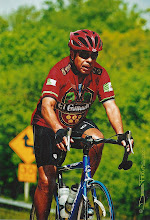Of all of my siblings, Bill’s childhood was the worst. He happened to have been born darker than the rest of us, and our father, in his infinite wisdom, or was it ignorance, prejudice, or just plain stupidity, declared that he was not the father and Bill was not his child. He totally disowned him, accusing our mother of infidelity. It was probably what caused the rift, which became a part of my earliest memories (see my first post). Bill was literally banished from our house, though our mother was not. For the most part, he was raised by our grandmother, called Aunt in Lucky Hill, St. Mary. There were periods when he lived with us, but these were not very frequent and I do not remember him staying with us very long for any one period. In fact, although he was only a year younger, I can only remember two periods when we attended the same school. For most of his childhood, Bill grew up away from his family.
I can only imagine the bitter hurt, resentment, and animosity he must have felt growing up.
For my part, I never really thought much about it while I was growing up. It was the way things were. I lived in Ocho Rios with our mother and father, and Bill lived in Lucky Hill with Aunt, his grandmother. Occasionally, I had to spend time with Aunt in Lucky Hill, and Bill would spend some holidays with us in Ocho Rios, and that was that. When my parents finally divorced, the separation became more permanent, and we hardly ever saw each other. But even then, I never thought much about how he felt being from his mother and father. I never thought of it as unfair, wrong, or unjust; it was just the way things were. Yes, I was glad that I was living in the town of Ocho Rios and not in the bushes of Lucky Hill. But that was the extent of my perception of any inequity.
It was not until I became a grown person that I saw the injustice. It was not just that he had to live in the country with its seclusion and lack of amenities, no running water, no electricity, and the never-ending chores, while I lived in a fairly suburban area with all the amenities of a Jamaican middle-class lifestyle. It was more than that, much more. I can only imagine the exclusion, the feeling that you are not wanted, of being left out, excluded from your own family, a throwaway, of being forced to live as a part of another family for most of your childhood. His hurt and resentment must have cut deep. I know it would have been for me. If the shoe were on the other foot, and I am keenly aware how easily that could have happened, I would have been a total delinquent, with a chip that would have landed me in a grave or a prison a long time ago.
Surprisingly, Bill became the ultimate gentleman. I have never heard him mention a hurt feeling or any derogatory sentiment against our father. Throughout his life, he gave him the utmost respect. He visited him often, even when he was a grown man and did not have to; he still visited him. In fact, I think Bill was the last one of us to have visited him before he died.
The good news is that Bill is still my kin and a finer gentleman, a more caring person, a more devoted father and, a more loving brother would be hard to find!




